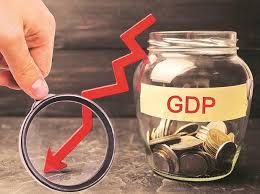HMRC umbrella company ‘checking tool’ looms for workers
Umbrella company consultation response and guidance due from HMRC, as more details come out on Tax Administration and...
READ MORE
Small businesses are not celebrating the news the UK has technically avoided a recession as they are still facing months of falling growth, said the Federation of Small Businesses (FSB).

FSB policy chair Tina McKenzie said that while it is positive that the UK has technically avoided a recession in the second half of last year, the news will come as cold comfort to many thousands of small businesses.
“In particular, the 0.5 per cent fall in GDP in December is a red flag showing the economy stalled at the end of 2022, just when small firms were hoping for a traditional festive boost,” she said.
“Looking ahead, the IMF and the Bank of England both predict a contraction in the size of the UK’s economy this year, leaving small firms facing a long period without growth. Just next month, many small firms who fixed their energy bills last summer as prices rocketed are worried that they will see three- or four-fold increases when the government’s Energy Bill Relief Scheme shuts down, making a number of them unviable.”
Ms McKenzie said the FSB’s own research has shown that small business confidence is trending down and said inflation is still a big concern for many of the federation’s members.
“Inflation is still a concern, and its effects will linger in the economy even once it falls back into a range we are more used to seeing,” she said.
“Interest rates remain high in the fight to curb inflation, with small businesses caught between elevated prices and greater debt costs.
“On the plus side, financial markets are performing well, and the reopening of China’s economy will help improve general global economic conditions.”
She said the government should now be focusing on helping small businesses to take advantage of any improving economic conditions in the upcoming mid-March budget.
“Late payment must be tackled, to get small suppliers the funds they are due in a timely fashion,” she said.
“The day-one taxes — like business rates — that take a chunk out of budgets before small firms make a penny in turnover should be examined, while the VAT threshold should be increased to encourage revenue growth.
“The cuts to R&D tax credits should be reversed, given the huge contribution to overall R&D made by small firms and the government’s own newly reaffirmed focus on science and technology. More people should be helped to reskill and upskill, while bringing in Help to Green vouchers would allow small firms to cut their emissions and their energy bills, while boosting the economy.
“We know what will help, and now need the government to work with us and turn an economy with GDP in the doldrums into one galvanised by a dynamic and growing small-business community.”
David Bharier, head of research at the British Chambers of Commerce, said while indicating the economy technically avoided a recession, the GDP figures also show some worrying developments.
“Production output fell by 0.2 per cent in Q4 2022, eight of the 14 service sectors saw contractions, and monthly GDP fell by 0.5 per cent in December,” he said.
“Small businesses have seen three years of economic shocks, including lockdowns, global supply chain crises, Brexit, and soaring energy costs.
“Our research has shown that most small firms have seen no improvements to sales, exports, or investment. Retailers and hospitality firms are among the worst affected by this current anaemic economy.
“There is some relief ahead in falling energy prices and with the potential peak in inflation. But firms face other headwinds, including continuing strike action and further uncertainty around our trading relationship with Europe.
“Businesses will need to see a long-term plan for growth and concrete action in the upcoming budget, including plans on infrastructure, tax, skills, and trade.”